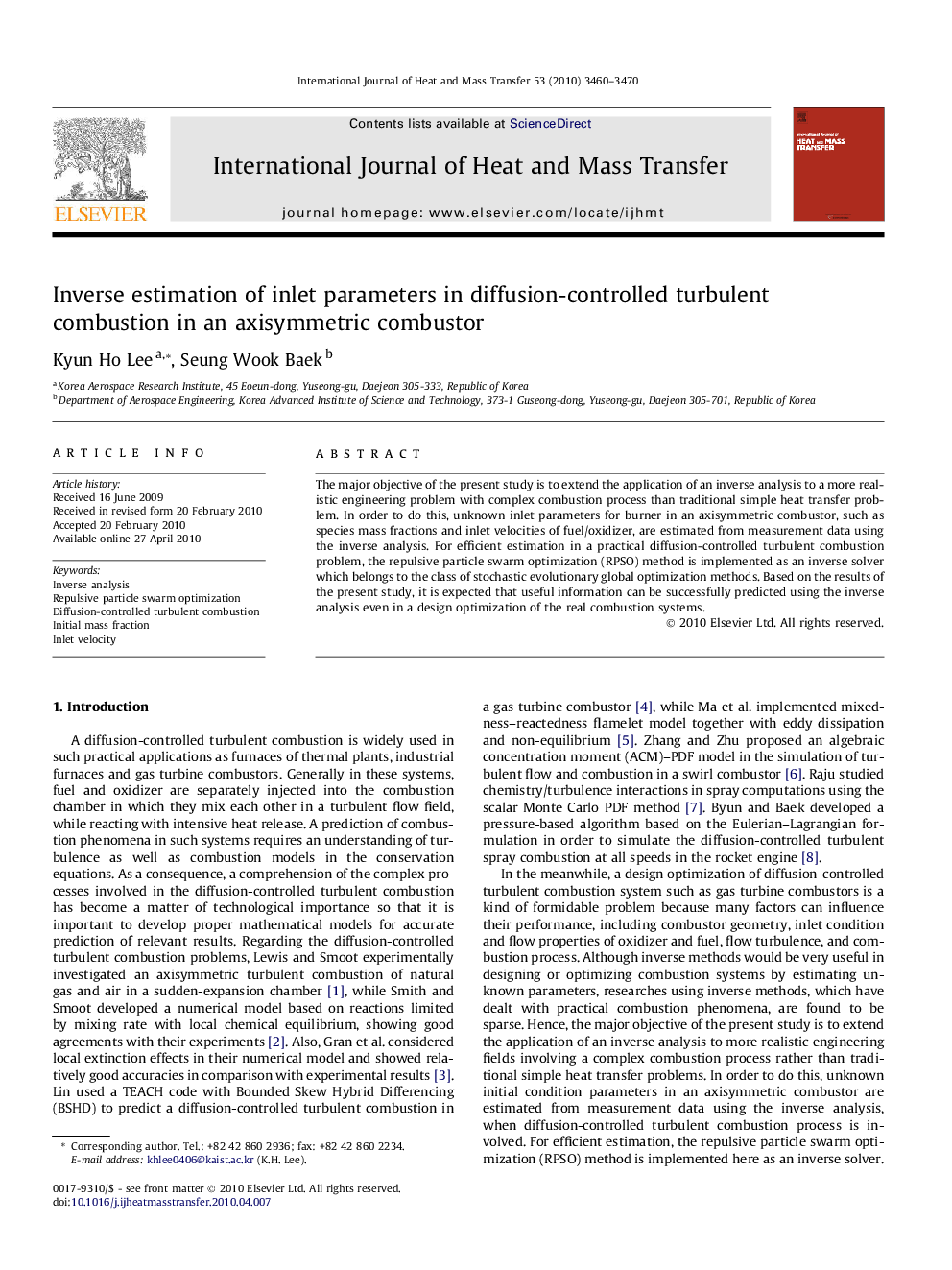| Article ID | Journal | Published Year | Pages | File Type |
|---|---|---|---|---|
| 660434 | International Journal of Heat and Mass Transfer | 2010 | 11 Pages |
Abstract
The major objective of the present study is to extend the application of an inverse analysis to a more realistic engineering problem with complex combustion process than traditional simple heat transfer problem. In order to do this, unknown inlet parameters for burner in an axisymmetric combustor, such as species mass fractions and inlet velocities of fuel/oxidizer, are estimated from measurement data using the inverse analysis. For efficient estimation in a practical diffusion-controlled turbulent combustion problem, the repulsive particle swarm optimization (RPSO) method is implemented as an inverse solver which belongs to the class of stochastic evolutionary global optimization methods. Based on the results of the present study, it is expected that useful information can be successfully predicted using the inverse analysis even in a design optimization of the real combustion systems.
Keywords
Related Topics
Physical Sciences and Engineering
Chemical Engineering
Fluid Flow and Transfer Processes
Authors
Kyun Ho Lee, Seung Wook Baek,
